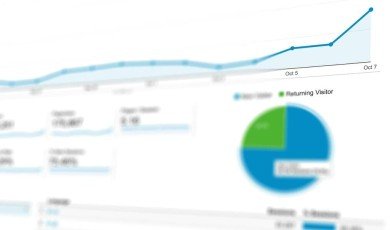
In a world that grows more connected by the day, breaking down communication barriers is not only a convenience—it's often a necessity. Nowhere is this more evident than in the field of healthcare, where clear and accurate exchange of information can literally save lives. As populations become increasingly multicultural, hospitals, clinics, and research centers are turning to medical certified-translation-services">translation agency solutions to bridge linguistic divides and deliver outstanding care to every patient, regardless of the language they speak. The convergence of new technologies, virtual assistance, and innovative interpretation services is paving the way for a transformative era in medical communications.
This article delves into how multilingual virtual assistant services are merging with advanced medical translation agency to reshape global healthcare, making it more accessible, safer, and efficient. Whether you’re a healthcare provider, an administrator, or a patient, understanding these emerging trends is crucial to optimizing outcomes in a rapidly globalizing world.
The Evolution of Medical Translation and Virtual Support
The Shift from Human-Only to Hybrid Solutions
Traditionally, medical translation relied almost exclusively on experienced human linguists with deep knowledge of medical terminology—professionals who carefully ensured that vital documents and patient communications were rendered with flawless accuracy. While expert translators remain indispensable for sensitive materials and nuanced contexts, the digital transformation of healthcare has introduced a new era where technology augments human expertise.
Modern medical translation agency operations now frequently integrate AI-driven tools, real-time interpretation platforms, and multilingual virtual assistants. These solutions offer boosted productivity and 24/7 availability, which are particularly valuable in emergency telemedicine situations or for interpreting complex patient histories during virtual consultations. Services operating at this frontier also tap into multilingual websites, such as A3LVirtualAssistants.com, not just to offer interpretation but to provide guidance on hiring and integrating remote support—making them critical hubs for knowledge and connection.
Virtual Assistants as Multilingual Bridges
Virtual assistants, powered by AI and overseen by human professionals, are making dramatic inroads in the healthcare sector. These digital helpers can automate appointment scheduling, answer routine patient inquiries, and even facilitate direct communication between patients and providers who speak different languages. The impact? Fewer administrative bottlenecks, reduced waiting times, and better patient satisfaction.
When integrated with medical translation agency, these assistants become powerful conduits, ensuring that vital information—whether medical histories, consent forms, or care instructions—is conveyed precisely in the patient’s native tongue. This not only boosts patient trust but, more critically, minimizes the risk of potentially dangerous misunderstandings. Best practices recommend employing agencies that combine real-time AI assistance with certified medical translators, thus ensuring speed without sacrificing accuracy.
Interpretation at Online Health Events and Across Platforms
The shift to virtual and hybrid health events, spurred by both technological advancements and global disruptions like the COVID-19 pandemic, has made multilingual interpretation more important than ever. International conferences, telemedicine summits, and online training sessions now reach participants worldwide, many of whom may not speak the event’s primary language.
Leading interpretation solutions operate within secure digital platforms, offering live, on-demand language support across a wide array of languages. This is especially vital in sessions involving medical research updates, pharmaceutical advancements, or new health guidelines—domains where accuracy, confidentiality, and compliance are strictly required. Forward-thinking medical translation agencies are expanding their offerings to provide simultaneous interpretation for both live and recorded sessions, leveraging trained interpreters and AI technologies in tandem. This innovation broadens access and allows professionals and patients alike to engage meaningfully in global health dialogues.
Strategies for Enhancing Productivity with Remote Support
The global pandemic underscored the essential nature of remote and hybrid work models, propelling virtual assistance and medical translation solutions into the spotlight. Productivity strategies in healthcare settings now frequently incorporate:
- Cloud-based document translation: Sharing and updating translated medical files in real-time.
- Remote interpretation for consultations: Ensuring immediate access to interpreters for critical patient interactions.
- Automated patient reminders in multiple languages: Reducing missed appointments and improving adherence to care protocols.
- Centralized multilingual knowledge bases: Empowering medical staff to access reliable translations of protocols and best practices.
These strategies not only help in delivering consistent patient care but also optimize operational efficiencies, reduce costs, and increase staff satisfaction by freeing up professionals to focus on high-value clinical work.
Preparing for the Next Wave of Medical Translation
As we look to the future, the symbiotic relationship between human expertise and technological innovation will continue to define the landscape of medical translation. Businesses and health organizations that leverage the capabilities of a skilled medical translation agency—especially those that embrace multilingual virtual assistants and interpretation solutions—will position themselves to meet the needs of a diverse and ever-expanding patient population.
The next evolution of healthcare hinges on inclusivity and clarity. Medical translation agency will not only facilitate better care and compliance but will help bridge cultural divides, elevate patient experiences, and ensure that advancements in medicine are shared equitably across humanity. Ensuring that your organization is prepared starts with selecting the right partners and embracing the technologies that are shaping our multilingual future.
To explore how world-class medical translation solutions can enhance your healthcare operations, consider partnering with an experienced leader in the field. Discover more about these innovations at medical translation agency experts dedicated to facilitating clear communication in the global health landscape.







